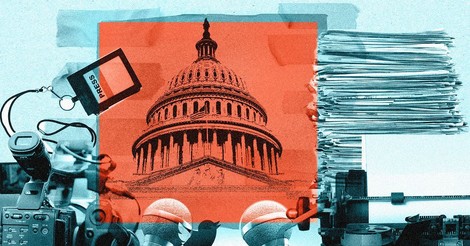Your podcast discovery platform
Curious minds select the most fascinating podcasts from around the world. Discover hand-piqd audio recommendations on your favorite topics.

piqer for: Global finds Deep Dives
Catalina Lobo-Guerrero is a freelance journalist and anthropologist currently living in Barcelona, Spain. For the past decade she has been working as an investigative journalist and correspondent in Bogotá, Colombia and Caracas, Venezuela where has written about politics, corruption, the armed conflict and violence. Her work has been published by The New York Times, The Guardian, El País and other smaller and independent media outlets in Latin America.
Jay Rosen Is Pessimistic About The Media. So Am I.
This is, perhaps, one of the most honest and thought-provoking conversations I have heard in a long time about the media's role in the world right now. Long time media critic Jay Rosen and Vox's Ezra Klein discuss for a little more than an hour what is shaping and reshaping journalism, public opinion and politics in Trump's era.
You might think that it's "such an American conversation", but it's not. Some of the issues they focus on are larger and fundamental to understanding journalism and politics all over the globe right now: the entertainment logic, reacting to tweets versus reporting on what matters, truth in a post-truth world, trust and the public interest, the failing business model of most media organisations, and the power of audiences and social platforms.
Neither Rosen nor Klein offer answers. In fact, they are both pessimistic about the current state of the news. But they are willing to explore the most urgent questions: Are we, journalists, doing it right or actually making things worse? Do we become the opposition? How do we defend democratic institutions? What is our role in this strange game of politics and public opinion?
In an over-competitive market, where it's getting increasingly tough to survive, where the old model based on advertising continues to decline, and where the logic of "entertainment" and algorithms are shaping many editorial decisions, journalists are also facing other types of tough questions: How do we choose what to pay attention to? Whose voices should be amplified? Who are you speaking to and from where?
As Rosen puts it clearly, "the view from nowhere" and the classic idea of objectivity, where journalists tell "the truth" no matter what, doesn't apply any more. Klein takes it one step further and acknowledges that, although journalists don't like to admit it, they are "an actor" and also "a business". So where is journalism heading to?
